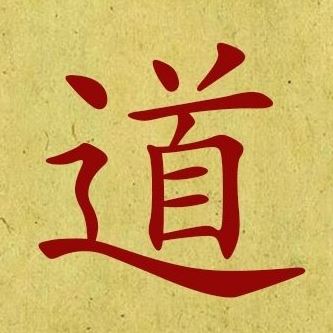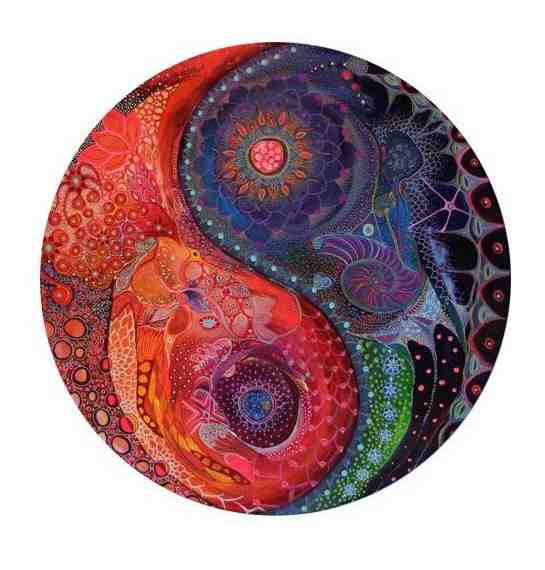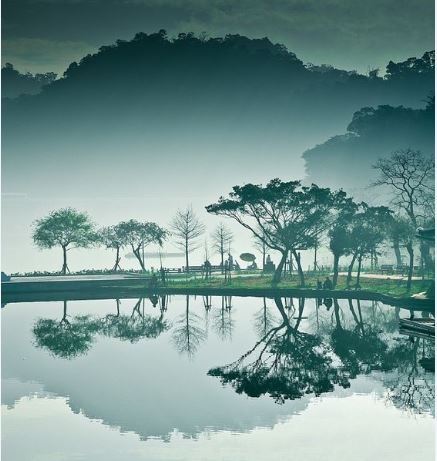Tao Te Ching
How To Be Lived By The Tao
Connecting To Your True Source Of Power
Introducing The Tao Te Ching
The Tao Te Ching is one of those books that many people read, few understand, and even fewer put into practice.
It encapsulates Taoist philosophical thought comprising ideas and concepts of Chinese origin with a focus on living in alignment and harmony with the Tao.
What is the Tao?
We are told that the Tao has no name, it can have no name.
However, in the dualistic world we live in, the Tao is conventionally also known as The Way which means the natural order of any or all of: the universe, God, how things really are, reality, emptiness, consciousness or the energy of life.
The theme of the book
The title "Tao Te Ching" translates in short form as "The Book Of The Way" or "The Immanence Of The Way" and in long form as ""The Book Of The Way And How It Manifests Itself In The World".
The theme of the book is living in harmony with the Tao [reality, consciousness, God, the energy of life etc]. This theme is described and expressed as living in harmony with the natural world.
Actually it is misleading to refer to the "end product" because there have been so many translations from the Classical Chinese into English and other modern languages and each reflecting to some degree the thought, insight and experience of the translator.
My own personal preference is the translation by Stephen Mitchell which is illustrated with Chinese paintings of nature selected by Asian art expert Dr Stephen Little.
Here is a free public domain translation of the Tao Te Ching.
The Tao is beyond words
But, regardless of the version and translation, what you read is more analogous to a modern musical performance of an ancient song than any solid credal statement of belief.
In my view the strength of this analogy is illustrated in the opening words of the Tao Te Ching which states quite clearly and emphatically that:
The difference between the “world as-it-is” with the “world as-it-is-thought-about” and spoken about, is vast.
There is always a context, and framing, in our use of words.
The concepts we employ, the categorizations we apply and the words we choose and use to articulate a direct experience put us in a double bind.
Why? Because for all that we gain by being able to
speak about an experience we lose a greater amount of the
full meaning of that experience by speaking it.
Zen koans on steroids
The written style of the Tao Te Ching can take your your breath away with the poetry of its aphorisms and then leave you scratching your head with the apparent irreconcilable contradictions they contain.
It's like reading zen koans on steroids!
Quite clearly, the purpose and meaning of the Tao Te Ching lies in the truth to which it points.
The Tao is experienced - it is felt in your heart
So, if you shift your focus to the meaning that lies behind or beyond the words:
- the meaning that transcends the words...
- the meaning that can only be fully grasped by experiencing it...
...then everything changes and divisions and barriers evaporate as you open your heart to it.
The Core Teachings Of The Tao Te Ching

The words in the Tao Te Ching are not a belief system.
This is not something that you can grasp intellectually.
As we have already established, the words are just pointers to the Tao.
The only way to know the Tao is to experience it, and it is experienced in your heart not your head.
You can experience the Tao spontaneously, but to experience it on a daily basis as a way of living requires action and practice.
What I am going to outline to you now may temporarily satisfy your mind with a workable concept of the Tao, but it will fade faster than the mist in the early sunshine of a summer morning unless it encourages you to take action.
For the rest of this section I am now going to refer to the Tao as Consciousness as it is a word that is more accessible to the modern mind.
This is my personal summary of the teachings in the Tao Te Ching:
- 3 Parameters of Consciousness
- 3 Behaviours that facilitate Access to Consciousness
- 3 Qualities that flow from Living in Consciousness
I have included a quote - usually one of many - to illustrate each point and have shown the number of the section of the book in brackets against each quote.
[1] The Expression Of Consciousness The expression of Consciousness is PARADOX "True words seem paradoxical." [78] This paradox exists within us - on one hand we have the capacity for experiencing the one-ness and unity of the enlightened mind and the awakened heart, and on the other hand we have the capacity for exercising a wide range of thinking skills in the everyday world of duality. [2] The Key To Living In Consciousness The key to living in Consciousness is BALANCE "Being and non-being create each other. [3] The Process Of Living In Consciousness The process of living in Consciousness is FLOW "Act without doing; "Less and less do you need to force things, 3 Behaviours That Give Access to Consciousness [1] Non attachment "Things arise and she lets them come; When her work is done, she forgets it. [2] Flexibility "Yielding is the way of the Tao" [40] "The gentlest thing in the world "Empty your mind of all thoughts. "Free from desire, your realise the mystery. 3 Qualities Of Living in Consciousness "I have just three things to to teach: [1] Simplicity "Simple in actions and in thoughts, [2] Patience [3] Compassion "Compassionate towards yourself,
"Only in being lived by the Tao "Let the Tao be present in your life The Tao Te Ching is not a detailed instruction manual. It's purpose is to point to the Tao [The Way]. This is very necessary as the human default setting is for your
ego to want to be in control. But when this happens, and your ego usurps your spiritual nature, you remain disconnected from your true source of power. In my experience, we can use the Tao Te Ching as a source of inspiration, a wake up call, and a reminder to stay connected to our true source of power.
The teachings in the Tao Te Ching point to a major realignment of how we normally function. This is about a 180 degree shift from living MY life to a life that is lived by the Tao. This is difficult for the natural egoic mind to comprehend as it requires a renewal of your mind. This
all takes work and effort as the human mind runs on deeply ingrained and
habitual patterns of thought. Neural pathways in your brain get stronger
with repetition and you will be training your brain to establish new
pathways through new activities, new patterns of thought, and new
behaviour. Based on my own personal experiences I recommend the following 3 core practices and 2 applied practices as a means of renewal. Each of the links below will take you to a page which explains how to do the practice and offers additional supporting resources. Core Practices "Can you coax your mind from its wandering "The Master sees things as they are, "Immersed in the wonder of the Tao, "Be content with what you have; Applied Practices "When the ancient Masters said, "In the pursuit of knowledge, Supporting Material The following articles will provide depth and context to these practices. I have shared a lot of my experiences and tried to make this material as accessible as possible, and I have also provided extensive cross references to supporting material on this site and quality third party material.
3 Parameters of Consciousness
Difficult and easy support each other.
Long and short define each other.
High and low depend on each other.
Before and after follow each other." [2]
work without effort." [63]
until you arrive at non-action.
When nothing is done,
nothing is left undone. " [48]
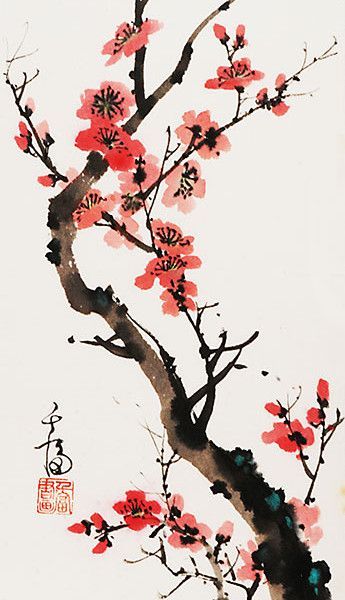
things disappear and she lets them go.
She has but doesn’t possess,
acts but doesn’t expect.
That is why it lasts forever." [2]
overcomes the hardest thing in the world." [43]
[3] Mindfulness
Let your heart be at peace." [16]
Caught in desire, you see only the manifestations." [1]
simplicity, patience, compassion.
These three are your greatest treasures." [67]
you return to the source of being."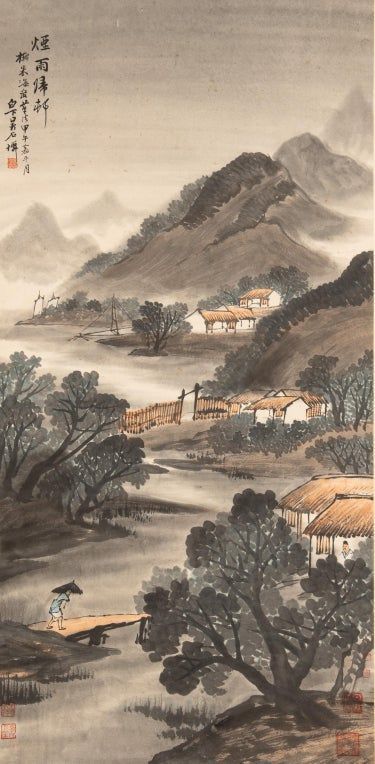
"Patient with both friend and enemies,
you accord with the way things are."
you reconcile all beings in the world."
How To Use The Tao Te Ching
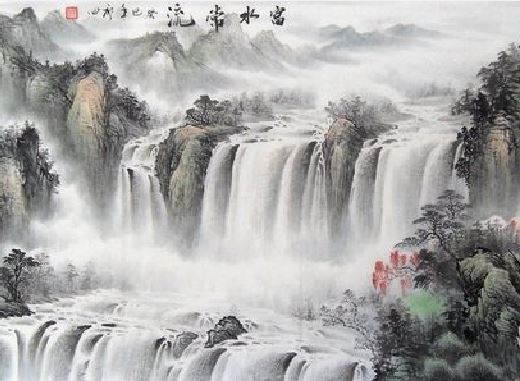
can you truly be yourself." [22]
and you will become genuine." [54]
Being Lived By The Tao
Renewing your mind is based on practices, not beliefs, that will have a
profound and positive effect on your life.
and keep to the original oneness?
Can you step back from your own mind
and thus understand all things?" [10]
without trying to control them." [29]
you can deal with whatever life brings you,
and when death comes, you are ready." [16]
rejoice in the way things are.
When you realize there is nothing lacking,
the whole world belongs to you." [44]
'If you want to be given everything,
give everything up,'
they weren't using empty phrases
Only in being lived by the Tao
can you truly be yourself." [22]
every day something is added.
In the practice of the Tao,
every day something is dropped.
Less and less do you need to force things,
until finally you arrive at non-action.
When nothing is done,
nothing is left undone." [48]
Third Party Resources:
10 Life-Transforming Themes & 25 Top Quotes from “Tao Te Ching”
The Tao Te Ching for Everyday Living
Tao Te Ching: The Taoist philosophy of Lao Tzu
Experiencing God Directly by Marshall Davis (Book Summary)
Next Article:
Dying To Self - Everything Does Not Revolve Around Me
Return from the "Tao Te Ching" to: Walking The Talk
LATEST ARTICLES
The Inner Weight of Shame - Sustained By Attentional Fixation
 A Mind That Is Continuously Engaged In Self-Surveillance. Shame is one of the heaviest inner burdens a human being can carry. It does not announce itself loudly or demand attention through drama. Inst…
A Mind That Is Continuously Engaged In Self-Surveillance. Shame is one of the heaviest inner burdens a human being can carry. It does not announce itself loudly or demand attention through drama. Inst…Does Prayer Work? The Psychology of Prayer, Meditation and Outcomes
 Reality Is A Complex System Of Countless Interactions - Including Yours. So does prayer work? The problem is that the question itself is usually framed in a way that guarantees confusion. We tend to a…
Reality Is A Complex System Of Countless Interactions - Including Yours. So does prayer work? The problem is that the question itself is usually framed in a way that guarantees confusion. We tend to a…Living in Survival Mode Without Surrendering Mental Authority
Living in Survival Mode Without Surrendering Mental Authority
 Clear Thinking When You’re Just Trying to Stay Afloat. Many people today are overwhelmed because they are living in survival mode - not temporarily, but as a persistent condition of life. For many, th…
Clear Thinking When You’re Just Trying to Stay Afloat. Many people today are overwhelmed because they are living in survival mode - not temporarily, but as a persistent condition of life. For many, th…Manifestation Without Magic: A Practical Model
 Manifestation without magic is not a softer or more intellectual version of popular manifestation culture. It is a different model altogether. Popular manifestation teachings tend to frame reality as…
Manifestation without magic is not a softer or more intellectual version of popular manifestation culture. It is a different model altogether. Popular manifestation teachings tend to frame reality as…Staying Committed When You Can't See Progress - The Psychology of Grit
 Uncertainty Is Not The Absence Of Progress, Only The Absence Of Reassurance. One of the most destabilising experiences in modern life is not failure, but uncertainty and staying committed when you can…
Uncertainty Is Not The Absence Of Progress, Only The Absence Of Reassurance. One of the most destabilising experiences in modern life is not failure, but uncertainty and staying committed when you can…The Battle For Your Mind - How To Win Inner Freedom In A Digital Age Of Distraction
 From External Events to Inner Events. We often think of “events” as things that happen out there: the traffic jam, the rude comment, the delayed email reply. But what truly shapes our experience is wh…
From External Events to Inner Events. We often think of “events” as things that happen out there: the traffic jam, the rude comment, the delayed email reply. But what truly shapes our experience is wh…How to See Your Thoughts Without Becoming the Story
 A Practical Guide to Thought-Awareness. You can spend your life inside the stories of your mind without ever learning how to see your thoughts clearly and objectively. Most of the stuff we tell oursel…
A Practical Guide to Thought-Awareness. You can spend your life inside the stories of your mind without ever learning how to see your thoughts clearly and objectively. Most of the stuff we tell oursel…The Collison Decision Matrix - A Simple Framework for Better Choices
 The Collison Decision Matrix Is A Practical Everyday Thinking Tool. Most of us spend a surprising amount of time worrying about decisions. From small ones such as what to wear, what to eat, what to te…
The Collison Decision Matrix Is A Practical Everyday Thinking Tool. Most of us spend a surprising amount of time worrying about decisions. From small ones such as what to wear, what to eat, what to te…The Power Of Asking The Right Question
 The Power Of Asking The Right Question Lies In The Quest For Insight. To experience the power of asking the right question you must develop the practice of asking questions. The best way to improve th…
The Power Of Asking The Right Question Lies In The Quest For Insight. To experience the power of asking the right question you must develop the practice of asking questions. The best way to improve th…Site Pathways
 Here is a site pathway to help new readers of Zen-Tools navigate the material on this site. Each pathway is based around one of the many key themes covered on this site and contain a 150 word introduc…
Here is a site pathway to help new readers of Zen-Tools navigate the material on this site. Each pathway is based around one of the many key themes covered on this site and contain a 150 word introduc…How To Live With Contradiction - Beyond Thought Let Stillness Speak
 A major impact on so many peoples' lives is the situational contradiction of unfilled realistic expectations. So where does all this leave us? Well here we are, with mental equipment that is more lim…
A major impact on so many peoples' lives is the situational contradiction of unfilled realistic expectations. So where does all this leave us? Well here we are, with mental equipment that is more lim…
